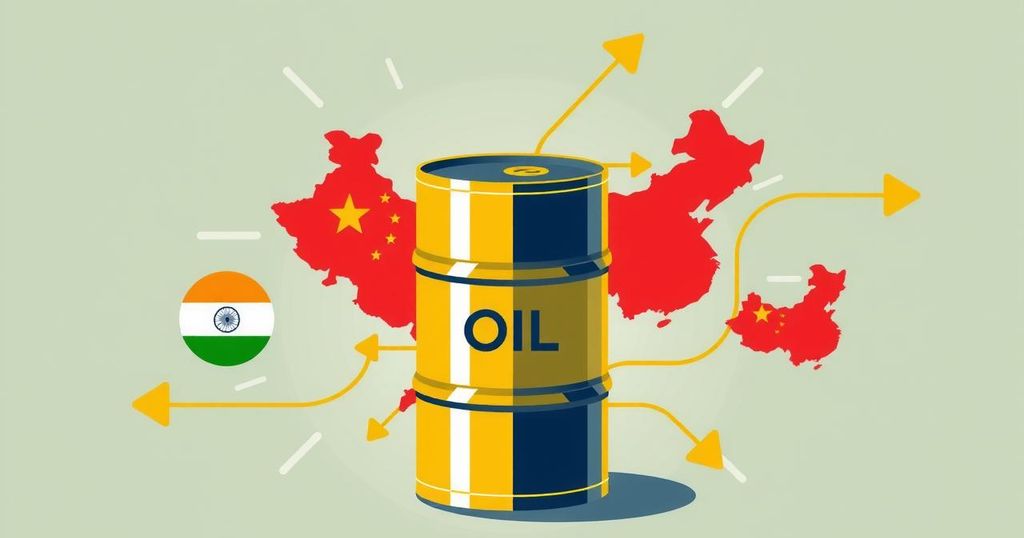Politics
AF, AFP, ASIA, CHEVRON, CHINA, CUBA, DONALD TRUMP, EU, EUROPE, GEOPOLITICS, GLOBAL ECONOMY, HOWARD LUTNICK, INDIA, JAMIE, MAR, MEXICO, NORTH AMERICA, SOUTH AMERICA, SPAIN, TARIFFS, TODAY NEWS, TRADE, TRUMP, UNITED STATES, US, US-CHINA RELATIONS, VENEZUELA, WASHINGTON, WHITE HOUSE
Clara Montgomery
Trump’s Imposition of Tariffs on Countries Purchasing Venezuelan Oil
President Trump plans to impose a 25% tariff on countries buying Venezuelan oil, notably affecting China and India. This move, effective as soon as April 2, is a continuation of his tariff strategy aimed at addressing trade imbalances. The initiative is expected to impact U.S. relations with other nations involved in Venezuelan oil imports.
On Monday, President Donald Trump announced plans to implement significant tariffs on countries that purchase oil and gas from Venezuela, notably impacting China and India. This decision, as stated by the AFP, aims to reshape economic and diplomatic relations, expanding Trump’s previous tariff initiatives since his return to office in January. The new tariffs, amounting to 25%, could affect both direct and indirect purchasers of Venezuelan oil and might be enacted by April 2, subject to consultation with various U.S. agencies.
This measure specifically targets nations like China and India, both of which import substantial quantities of Venezuelan oil. In February alone, it was reported that China imported around 500,000 barrels of oil per day from Venezuela, whereas the United States imported approximately 240,000 barrels. Furthermore, President Trump highlighted that these new tariffs would be incremental to existing rates.
The president has labeled April 2 as “Liberation Day” for the U.S. economy, committing to reciprocal tariffs designed to counter what he perceives as unfair trading practices. Initial indications suggested a broader implementation of sector-specific tariffs; however, recent developments indicate a more focused approach.
In a post on Truth Social, Trump cited numerous justifications for the imposition of this “secondary tariff,” accusing Venezuela of sending criminals to the U.S. and depicting the country as hostile to American freedoms. According to his directive, the 25% tariff will cease one year after the last recorded import of Venezuelan oil by a nation.
In related news, the Trump administration extended the deadline for Chevron to cease its Venezuelan operations until May 27, allowing the company to continue its activities under a sanctions waiver. Additionally, U.S. negotiations with international partners are progressing as trade talks advance, with significant discussions taking place involving EU trade representatives and American officials. Financial markets reacted positively to the possibility of a narrowed tariff strategy, indicating optimistic sentiments among investors.
In summary, President Trump’s recent announcement regarding new tariffs on countries importing Venezuelan oil reflects his administration’s ongoing efforts to influence international economic relations. With a 25% tariff targeting nations like China and India, this initiative fits within a broader strategy to address perceived trading imbalances. The discussions surrounding these tariffs and their potential economic impacts will continue to shape relations between the U.S. and its global partners.
Original Source: www.livemint.com








Post Comment